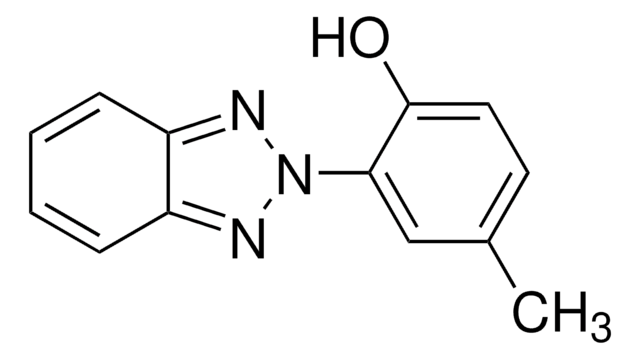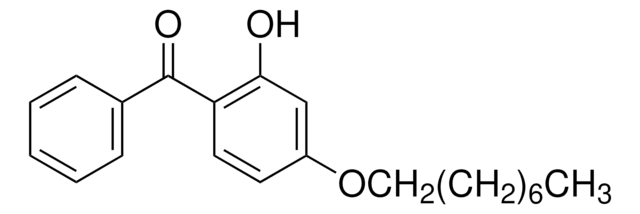86680
Tetraethylene glycol dimethacrylate
technical, ≥90% (GC)
Sinónimos:
PEG bismethacrylate, PEG dimethacrylate, PEG hydrogel
About This Item
Productos recomendados
grado
technical
Análisis
≥90% (GC)
formulario
liquid
contiene
~0.006% hydroquinone as stabilizer
índice de refracción
n20/D 1.463
densidad
1.082 g/mL at 20 °C (lit.)
temp. de almacenamiento
2-8°C
cadena SMILES
C=C(C)C(OCCOCCOCCOCCOC(C(C)=C)=O)=O
InChI
1S/C16H26O7/c1-13(2)15(17)22-11-9-20-7-5-19-6-8-21-10-12-23-16(18)14(3)4/h1,3,5-12H2,2,4H3
Clave InChI
LTHJXDSHSVNJKG-UHFFFAOYSA-N
¿Está buscando productos similares? Visita Guía de comparación de productos
Aplicación
- Reducing Polymerization Shrinkage: Study focused on reducing polymerization shrinkage in dental restorative composites by using various multifunctional (meth)acrylates including TEGDMA (Świderska et al., 2014).
- Anti-Metastasis and Anti-Angiogenic Activities: Identification of TEGDMA′s potential anti-cancer drug properties due to its anti-metastasis and anti-angiogenic activities (Oh et al., 2018).
Código de clase de almacenamiento
10 - Combustible liquids
Clase de riesgo para el agua (WGK)
WGK 1
Punto de inflamabilidad (°F)
230.0 °F - closed cup
Punto de inflamabilidad (°C)
110 °C - closed cup
Equipo de protección personal
Eyeshields, Gloves, type ABEK (EN14387) respirator filter
Certificados de análisis (COA)
Busque Certificados de análisis (COA) introduciendo el número de lote del producto. Los números de lote se encuentran en la etiqueta del producto después de las palabras «Lot» o «Batch»
¿Ya tiene este producto?
Encuentre la documentación para los productos que ha comprado recientemente en la Biblioteca de documentos.
Los clientes también vieron
Nuestro equipo de científicos tiene experiencia en todas las áreas de investigación: Ciencias de la vida, Ciencia de los materiales, Síntesis química, Cromatografía, Analítica y muchas otras.
Póngase en contacto con el Servicio técnico












